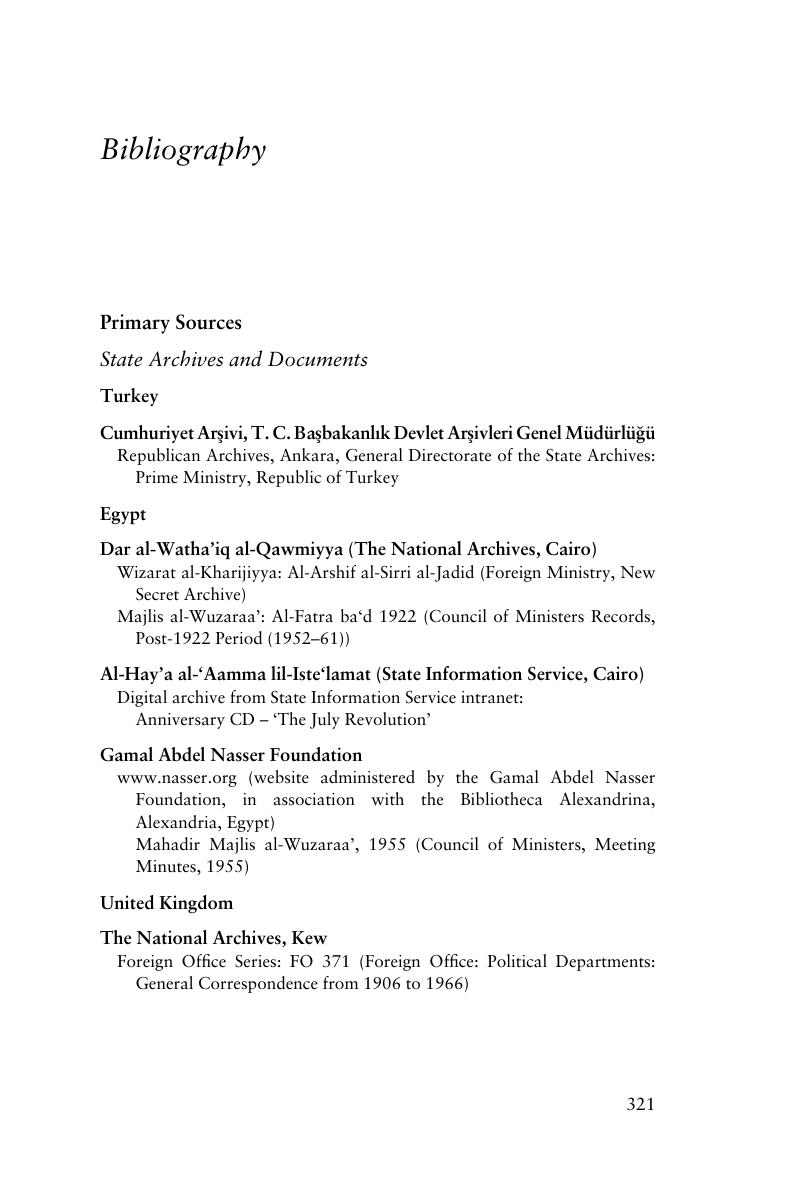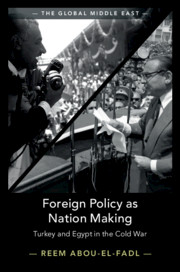Book contents
- Foreign Policy as Nation Making
- The Global Middle East
- Foreign Policy as Nation Making
- Copyright page
- Contents
- Figures
- Acknowledgements
- Abbreviations
- Introduction
- 1 Empire and Nationalism in Turkey and Egypt, 1839–1950
- 2 The Democrats in Opposition: Imagining a ‘Little America’
- 3 The Free Officers in Opposition: Imagining Revolution
- 4 Turkey’s Accession to NATO, 1950–2: Members of the ‘Free World’
- 5 Neutralism and Pan-Arabism in Egypt, 1952–4: Securing Sovereignty
- 6 Turkey and the Baghdad Pact, 1955: ‘Freeing’ the Middle East
- 7 Egypt from the Baghdad Pact to Czech Arms, 1955: Shielding Sovereignty
- 8 Turkey and the Syrian Crisis, 1957: Linking Spheres
- 9 Egypt from Suez to Syrian Union, 1956–8: Sovereign Action
- Comparative Conclusions
- Bibliography
- Index
- References
Bibliography
Published online by Cambridge University Press: 03 December 2018
- Foreign Policy as Nation Making
- The Global Middle East
- Foreign Policy as Nation Making
- Copyright page
- Contents
- Figures
- Acknowledgements
- Abbreviations
- Introduction
- 1 Empire and Nationalism in Turkey and Egypt, 1839–1950
- 2 The Democrats in Opposition: Imagining a ‘Little America’
- 3 The Free Officers in Opposition: Imagining Revolution
- 4 Turkey’s Accession to NATO, 1950–2: Members of the ‘Free World’
- 5 Neutralism and Pan-Arabism in Egypt, 1952–4: Securing Sovereignty
- 6 Turkey and the Baghdad Pact, 1955: ‘Freeing’ the Middle East
- 7 Egypt from the Baghdad Pact to Czech Arms, 1955: Shielding Sovereignty
- 8 Turkey and the Syrian Crisis, 1957: Linking Spheres
- 9 Egypt from Suez to Syrian Union, 1956–8: Sovereign Action
- Comparative Conclusions
- Bibliography
- Index
- References
Summary

- Type
- Chapter
- Information
- Foreign Policy as Nation MakingTurkey and Egypt in the Cold War, pp. 321 - 360Publisher: Cambridge University PressPrint publication year: 2018



